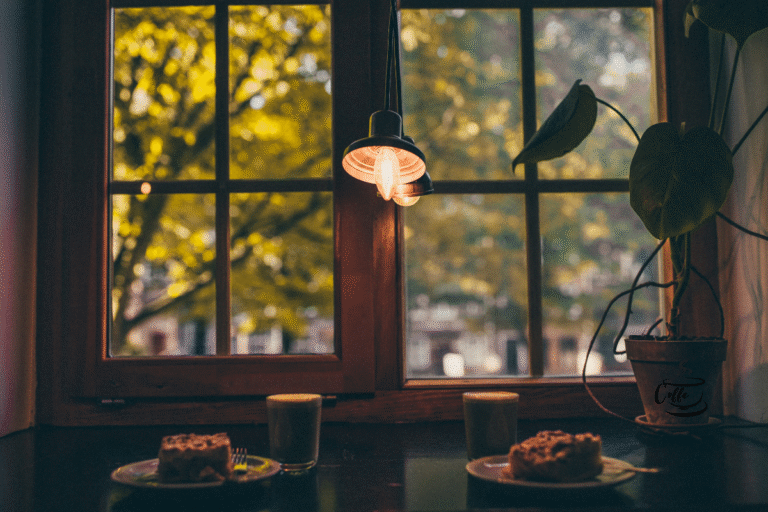In today’s fast-paced society, many people wake up with an alarm already ringing in their heads. Notifications, emails, meetings, and endless to-do lists make mornings feel like a race instead of a gentle beginning. But what if the real secret to productivity, creativity, and happiness wasn’t rushing — it was slowing down?
Some people find mornings extra hard depending on their zodiac. Learn more in Why Your Zodiac Sign Affects Your Sleep Patterns.
Welcome to the idea of the slow morning — a mindful way of starting your day that helps you regain control of your modern life.
What Is a Slow Morning?
A slow morning isn’t about sleeping late or wasting time. Instead, it’s about intentional rituals that bring calm and focus before the day takes over. It means waking up with space to breathe, reflect, and enjoy the present moment.
This could look different for everyone: sipping tea without scrolling your phone, journaling, stretching, or even enjoying a quiet breakfast. The point isn’t the activity itself — it’s the unrushed rhythm.
Why Modern Life Steals Our Mornings
The modern era rewards speed. We live in an “always-on” culture where productivity is often measured by how early we check emails or how fast we reply to messages.
- Digital overload: Most people check their phones within 5 minutes of waking up.
- Commute culture: For many, mornings are tied to rushing out the door, grabbing coffee on the go, and battling traffic.
- Work expectations: Remote work blurred boundaries, so emails and Slack messages start pinging even before breakfast.
As a result, mornings feel like a battle — and we lose the chance to connect with ourselves before connecting with the world.
The Science Behind Slow Mornings
Slowing down in the morning isn’t just a luxury; it’s backed by research.
- Cortisol and stress – Cortisol, the “stress hormone,” spikes naturally when we wake up. Jumping straight into work or news can make this spike even sharper, leading to anxiety. Slow mornings help smooth this curve.
- Creativity boost – Studies show our brains are most creative during relaxed, unfocused states. A slow morning ritual — like journaling or walking — can spark fresh ideas.
- Better decisions – When mornings are calm, you set the tone for your choices throughout the day. It’s like mental armor against stress.
How to Create Your Own Slow Morning Ritual
Here are some practical ways to design mornings that feel rich, not rushed.1
1. Wake Up 30 Minutes Earlier
You don’t need hours. Even 30 minutes of quiet can shift your mindset for the whole day.
2. Stay Away from Your Phone
Instead of diving into notifications, let your first moments belong to you. Use that time for stretching, breathing, or sipping water.
3. Eat Breakfast with Intention
Modern life often skips breakfast or replaces it with fast food. But mindful eating — like porridge, eggs, or fruit — fuels body and mind.
4. Journal or Meditate
Writing a few lines about your thoughts, or practicing meditation, helps organize your inner world before the outer one demands attention.
5. Add a Small Ritual of Joy
This could be making coffee slowly, playing soft music, watering plants, or even stepping outside for fresh air. Small rituals matter.
Real-Life Examples of Slow Mornings
- Tokyo Office Worker: Instead of rushing to the train, Ayaka wakes 20 minutes earlier to stretch, sip green tea, and prepare her bento calmly. She says it makes her commute less stressful.
- New York Entrepreneur: Jason begins each day with journaling and a slow espresso ritual. “It feels like my brain wakes up before my inbox does,” he shares.
- Bali Digital Nomad: Sofia spends mornings walking barefoot on the beach before opening her laptop. This reset gives her clarity for her freelance projects.
No matter the lifestyle, people who embrace slow mornings often feel more present, calm, and productive.
FAQs About Slow Mornings
Q: What is the ideal length of a slow morning?
A: Even 20–30 minutes can make a big difference. It doesn’t have to be long — just intentional.
Q: I have kids and a busy schedule. Is this realistic?
A: Yes. A slow morning might be as simple as waking up before your household, enjoying a quiet coffee, or doing 5 minutes of deep breathing.
Q: Does a slow morning mean no alarms?
A: Not necessarily. It’s about what you do after waking, not whether you use an alarm.
Q: Can slow mornings improve productivity?
A: Absolutely. By lowering stress and improving focus, they often lead to better work output during the day.
A slow morning routine becomes even more powerful when you’re traveling. Explore the Top 15 Digital Nomad Cities To Live and Work in 2025.
Why Slow Mornings Are Worth Fighting For
In the busy era, a slow morning is an act of resistance. It’s a statement that your life isn’t just about rushing, deadlines, or screens. It’s about creating a space where you decide the pace.
If you want better health, sharper focus, and more joy in daily life, start tomorrow not with a race — but with a pause.
Because sometimes, the slowest mornings create the fastest progress.



